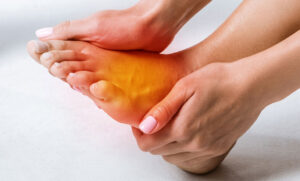Why Should You Never Ignore Muscle Pain?
 Muscle pain is not always severe, but what about pain that keeps coming back or pain that never goes away? When you experience a pain for the first time, you may believe it has no meaning; however, if it persists you need to make an appointment with your doctor.
Muscle pain is not always severe, but what about pain that keeps coming back or pain that never goes away? When you experience a pain for the first time, you may believe it has no meaning; however, if it persists you need to make an appointment with your doctor.
An unusual ache characterized by sharp or throbbing pain. Any pain that suddenly appears can be a distressing experience you should never take for granted.
Do not ignore ache in your jaw, especially the ache at the lower left, as this is a symptom of heart attack. Another thing you need to consider regarding jaw pain is that you are not able to determine where the ache is, as your jaw becomes moveable. It occurs when the nerve becomes irritable around your jaw. The pain radiates from your spine, and various other parts of your body.
The main portion of your body which feels the pain is your left shoulder, jaw and arm. Give time and proper attention to this matter, especially if your jaw ache is not related to TMJ, as this could be a sign of sinus infection. If you experience jaw pain in the morning, this is usually a sign of heart disease; the blood tends to be thicker in the morning, causing the blood pressure to rise more than usual. If you have serious jaw and chest pains, as well as left arm and shoulder pain, the risk is higher. If you experience dizziness and weakness, consult your doctor right away to prevent your condition from worsening.
If you have abdominal pain it can be a sign of gallstones. Some women experience this pain exaggeratedly. You feel this ache in the upper right side of the stomach, just over your rib cage. A sharp pain that seems to originate from the back of your body and travel towards your shoulder blade. This pain does not just fade away so easily. You will just have concerns with gallstones if there is a blockage of the cystic duct, also known as the general bile area. Once you feel abdominal pain that doesn’t disappear and you have tried all the treatments but nothing seems to work, you should see a doctor.
Pins and needles are symptoms of such injuries. An ache that tingles suggests that movement or flow in your feet are not sufficient, or that you have a damaged nerve. You may also feel a burning sensation in your feet or a feeling of numbness. When the tingling does not last, worry no more as the blood flows freely, allowing the release of numbness and pain. Once the pain continues for a number of days, you need to consider visiting your doctor for further treatment.
Tingling which is experienced with muscle weakness means you have a neurological concern which must be given special attention. You should not ignore the types of muscle pain you experience, and you should visit your doctor as often as possible for a checkup.
